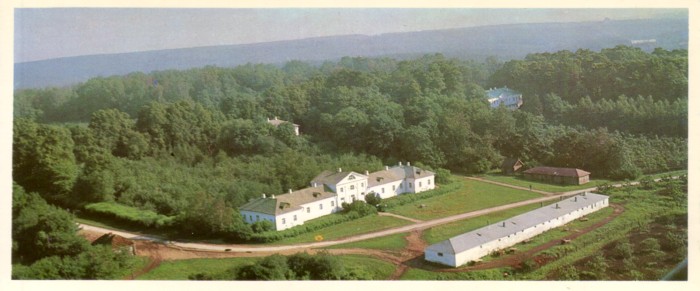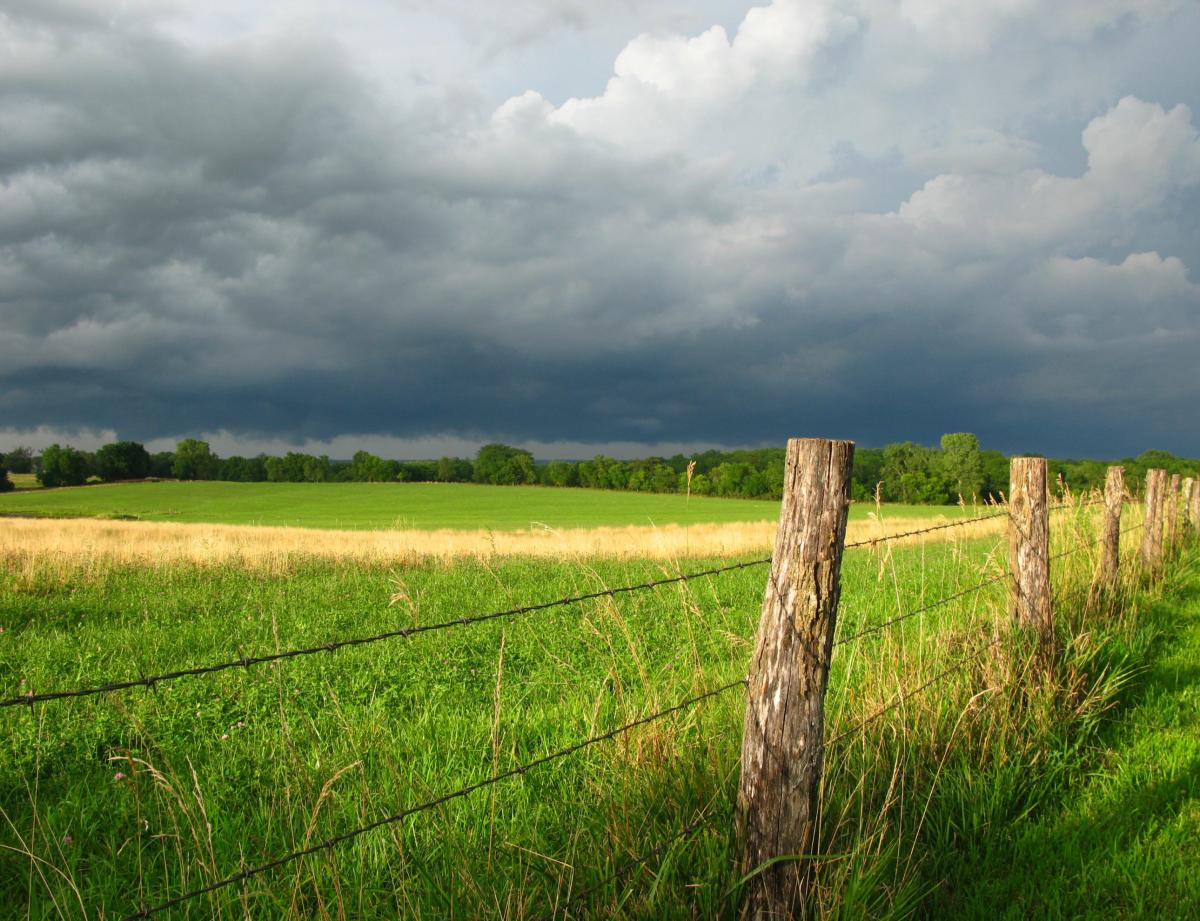Friday Reads: October 2016
In celebration of the release of Issue 12, October’s Friday Reads recommendations come from four of our Issue 12 contributors—poets, essayists, storytellers. As you might then expect, the breadth of their reading stretches wide: stories set in California on the brink of apocalypse or a bizarre state-sponsored research lab; poems rewoven eerily from dark fairy tales, or mixed from myth and history. If you hurry, you might just have time to read them all before Issue 12 hits your mailbox.
Recommended:
The Anathemata by David Jones, In an I by Popahna Brandes, Gold Fame Citrusby Claire Vaye Watkins, and The Well Speaks of Its Own Poison by Maggie Smith.
Tolstoy’s Dumbbells
By KURT CASWELL

Right now in heaven, Tolstoy is playing with his dumbbells, even those little rounded weights he kept in his study at Yasnaya Polyana have come up with him into the cloud-city of the afterlife. In the spring of 2016, I toured his old house and the estate on which he lived, walked out through the green trees and the precision mosquitoes to his burial mound, a grass covered box-shaped hill on the ground where the great man went in. But why was he great, when so much of his life was spent—that little account of time we all bank on—in little rooms sitting in a chair made for children, propped up on a pillow, his waning eyesight pulling his face in ever closer to the page?
October 2016 Poetry Feature
This month, we are featuring a collaboration between poet Tina Cane and visual artist Esther Solondz, in response to Elena Ferrante’s fiction. Their work in full will be featured in the book, Dear Elena: Letters for Elena Ferrante from Skillman Avenue Press in November.
Beautiful and Splendid
When I speak to Dave on the phone the first time, he tells me his father died from cancer, that what he’s selling is part of his Dad’s huge collection of vintage stereo equipment. I’m sitting in the parking lot of an animal hospital in Northern Virginia, where I’ve just dropped off my dog Swayze for palliative radiation for her own cancer.
I tell him I’m sorry to hear it.
“He didn’t do anything but sit in a chair for two years while they kept him alive. He’s better off dead,” Dave says. “He was 82. He lived his life.”
I’d driven to Virginia from Maryland’s Eastern Shore where my wife, Susan, and I live and was trying to arrange a time to visit Dave back in Maryland so I could look at a few things he was selling on Craigslist: two reel-to-reel tape players and a vintage 200 watt Kenwood receiver, all listed far below their value. I’d buy the stuff from him, and then sell it at market value on eBay. The money would help pay for Swayze’s chemotherapy. I didn’t want Dave to know that though.
Blue Norther
By GAIL FOLKINS

Tesoro, a blood-bay quarter horse, galloped toward me across the fall grass. The temperature had dipped 25 degrees from a few hours before, the wind’s sharp whine outside the barn colder still. Weather changed that fast in Texas, locals using the expression blue norther to describe Arctic air charging from the north without stopping.
The Common at the Mead
Join the staff of The Common for an evening of readings from Tajdeed, our special issue of Middle Eastern fiction, plus a sneak peek at the next issue. Readings will take place in the Mead Art Museum’s beautiful Rotherwas Room, with light refreshments to follow.
Space and Cumulative Erasure: An Interview With Youmna Chlala
SARETTA MORGAN interviews YOUMNA CHLALA

Youmna Chlala was born in Beirut and is currently based in New York City. Her work investigates the relationship between fate and architecture through video, drawing, books, installation, and performance. She was recently an Open Sessions artist at The Drawing Center and a resident artist at the Lower Manhattan Cultural Center’s Process Space. Her work has been widely exhibited at spaces that include Art Dubai Projects; Institute of Contemporary Arts, London; Rotterdam International Film Festival; Camera Austria; Art in General, New York; and San Jose Museum of Art. Her writing has appeared in numerous journals. Chlala is the Founding Editor of Eleven Eleven {1111} Journal of Literature and Art and recipient of a Joseph Henry Jackson Award. Her poetry book, The Paper Camera, will be published by Litmus Press in 2017.
Saretta Morgan met with Chlala at McNally Jackson Books in SoHo, New York City, in the late spring of 2016 to talk about relationships, speculation and space.
Love in the Absence of Persephone
Do you remember when we’d go walking in the rain, and your coat was too big for you so that I couldn’t see your face under the hood? And we’d lean against one of the giant cedars growing among the graves in the Pioneer Cemetery, tree and stone planted over a hundred years before by ancestors unknown to us? And when we went to kiss, we bumped teeth because all sense of space had been lost? It was then I started falling in love with you.
Friday Reads: September 2016
This month’s Friday Reads recommendations will take you from an Amsterdam dinner table to a New York City hospital room, and from 1970s Sarajevo to modern-day Seoul. These captivating books highlight conflict and memory in equal parts, and the results are certainly worth a spot on your fall reading list.
Recommended:
My Name is Lucy Barton by Elizabeth Strout, The Dinner by Herman Koch, The Book of My Lives by Aleksandar Hemon, and The Vegetarian by Han Kang.









